‘I’ll probably never buy a carbon bike again’ - Olympian Chloe Hosking goes all in on alloy with her own bike company
Hosking Bikes, the first-ever bike brand founded by a female professional road cyclist, aims to prove that carbon is not king with its affordable, high-performance alloy race bikes

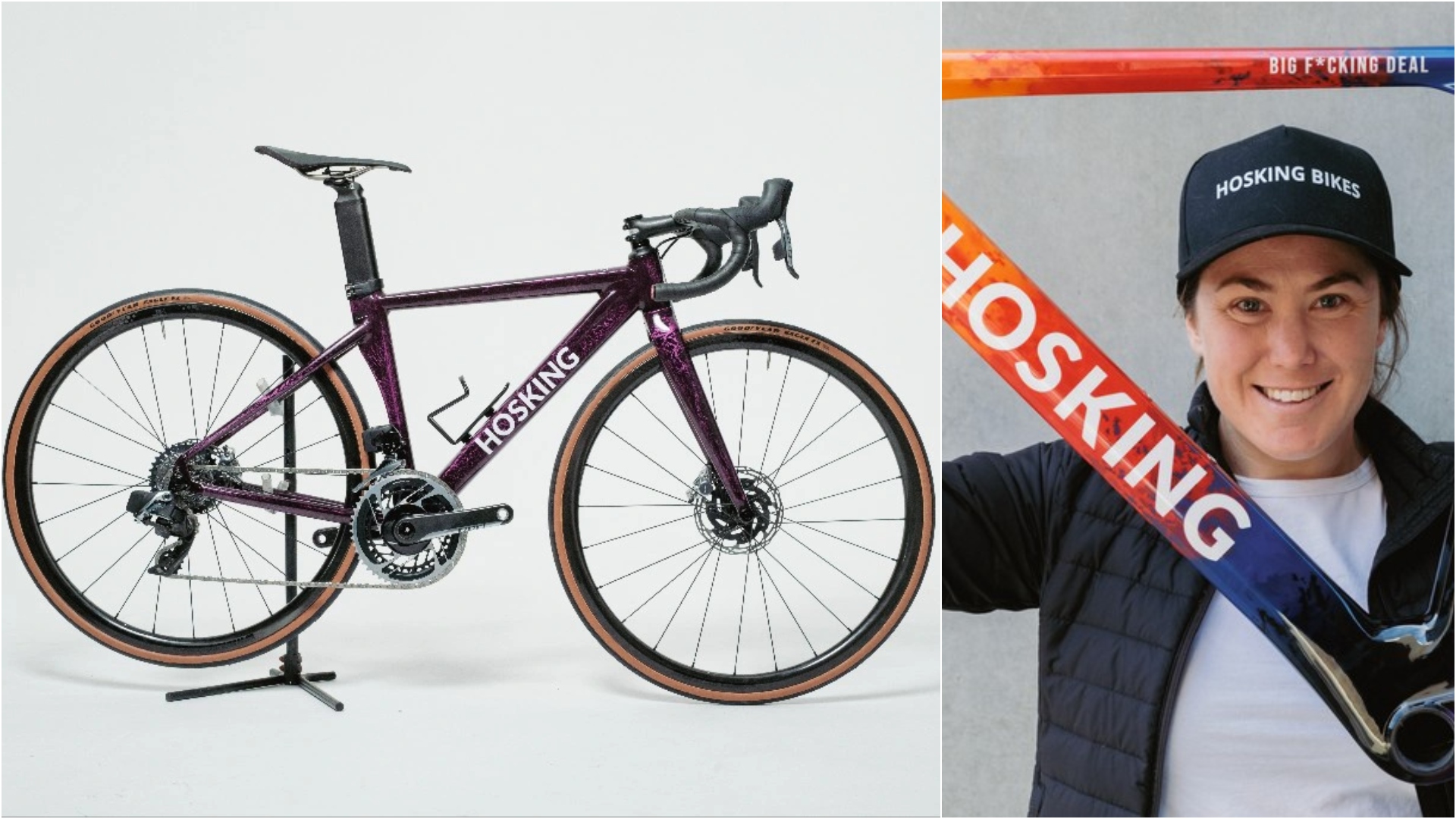
The latest race content, interviews, features, reviews and expert buying guides, direct to your inbox!
You are now subscribed
Your newsletter sign-up was successful
Chloe Hosking is no stranger to building success from scratch. The Australian former pro cyclist started racing as a junior on the track and quickly found success with a series of silver and bronze medals at the national level. She then made the switch to road racing, where she amassed numerous accolades, including a Commonwealth Games gold medal, stage victories in the Giro Rosa and a sprint victory at La Course by Le Tour de France, before retiring in 2023.
While racing, Canberra-based Hosking received her undergraduate degree in journalism and is now pursuing a law degree, while also continuing to build her legacy in cycling.
In 2023, Hosking launched her own bike brand, the eponymous Hosking Bikes, which is the first-ever bike brand founded by a female professional road cyclist and aims to 'disrupt the status quo'. Unique in her approach is the fact that she went all in on alloy, instead of carbon, with the aim of producing high-performance bikes from metal with a more affordable pricetag.
"I’ve seen that alloy bikes can be just as competitive in a peloton as carbon ones. The vast majority of people do not need to spend 20 grand on a carbon bike.”
Chloe Hosking
Introducing: Hosking Bikes
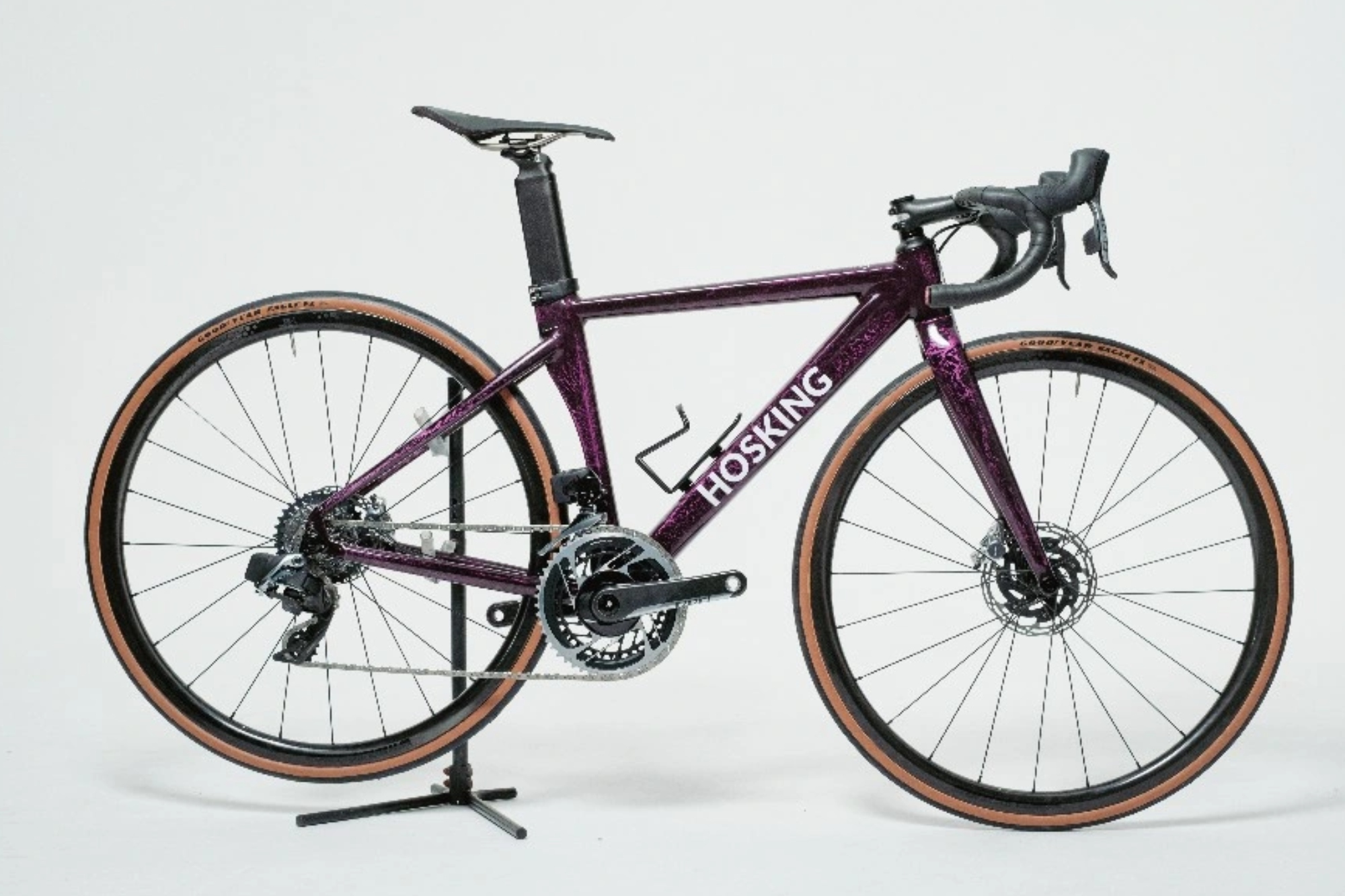
Shipping this spring, the Hosking Bikes collection currently consists of two base models: an alloy aero road bike with integrated cable routing and a carbon fork, and an all-road model designed around 40mm tires with flat-bar and drop-bar builds available.
The alloy frames come in five stock sizes, ranging from an extra-small (42-44cm) to extra-large (57cm), and all bikes are made-to-order.
On the road side, customers can choose from four SRAM-equipped builds, and for the all-road range, there are seven build kits available, again all SRAM-based.
Why Alloy?
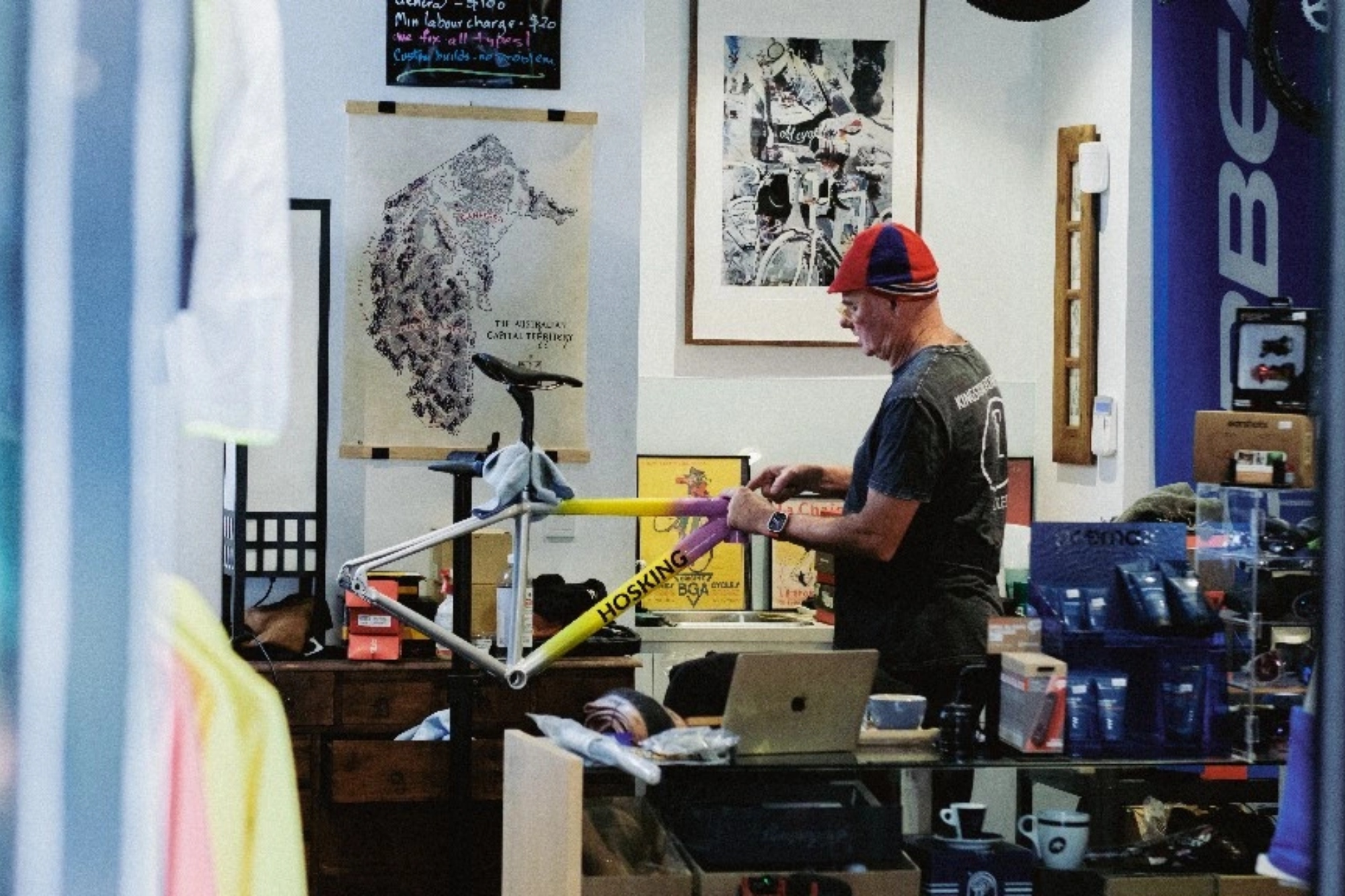
Made to go fast, the frames were designed and engineered in collaboration with the sprint queen herself, one prototype at a time.
The latest race content, interviews, features, reviews and expert buying guides, direct to your inbox!
For the initial design, Hosking reflected on every bike she'd ridden in her 13-year pro career, highlighting what she liked and what she wanted to change. She worked with an experienced designer and engineer to turn these designs into a rideable prototype, which she then rode and tested herself in Canberra, taking notes and requesting changes for new prototypes. This went on for months until the frame performed as she envisioned.
But with prototyping comes expenses. Each round of prototyping cost between $4,000-8,000 USD — not an insignificant investment for someone creating a brand from scratch, yet a fraction of the cost of carbon prototyping, which require expensive molds.
In addition to saving costs by going for alloy bike frame, Hosking was also able to actually test ride each and every prototype.
“At Hosking Bikes, we’ve actually ridden all of the frames we sell. We didn’t rely on a software to predict what the bike would feel like for the rider, so that’s one benefit of using alloy: it’s highly adjustable in the prototyping stage,” Hosking says.
“We still have the large upfront cost of purchasing all of the alloy tubes and working with our manufacturers, but alloy allows us to have a much more flexible manufacturing and design process than if we were working with carbon.”
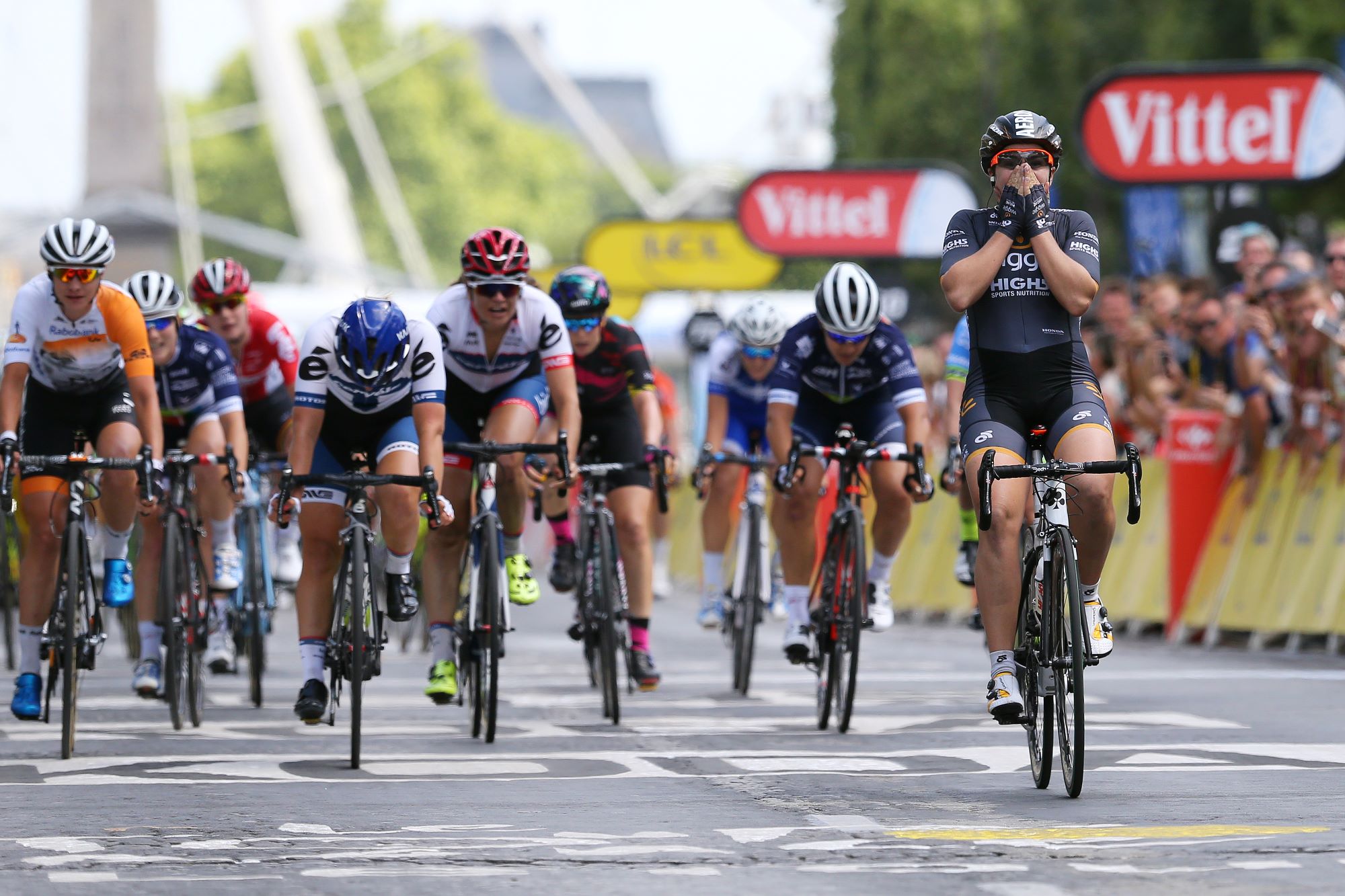
Design-process aside, Hosking chose alloy because she wanted her bikes to be world-class in terms of performance yet also durable and affordable.
“We want our bikes to cost about the same in five years as they do now, so we select materials and components that give us the best chance of that,” Hosking tells Cycling Weekly.
In addition to keeping the cost down, Hosking believes that alloy frames offer the rider a sense of security. Should the rider crash or fall, an alloy bike is less likely to crack or chip than a carbon bike.
“I’ve witnessed elite riders here in Australia ride stunning carbon bikes twice before crashing out, snapping their frame in two, and now being without a bike,” Hosking says. “Alloy bikes are far tougher when it comes to withstanding general wear and tear or a crash, and they cost less, too.”
"I think cycling industry marketing has been very effective at convincing people they need to spend an insane amount of money on carbon frames when the reality is you can purchase an alloy frame that weighs about the same and is less likely to crack.”
Chloe Hosking
Generally speaking, carbon purists turn up their nose at alloy bikes because they are seen as heavier, clunkier and less-comfortable than carbon frames.
Hosking begs to differ.
“Alloy does not equate to ‘heavy'," she says. “We’ve been able to bring the weight of our frames down and we will continue to do so. I think cycling industry marketing has been very effective at convincing people they need to spend an insane amount of money on carbon frames when the reality is you can purchase an alloy frame that weighs about the same and is less likely to crack.”
Hosking Bikes’ top-of-the-line bike, the HR4 AXS road bike, tips the scales at 7.91kg in a size small. By comparison, a full-carbon Trek Madone with similar specs weighs in 7.5kg,
Hosking notes that for some, a carbon bike may be the right choice, and acknowledges that it is indeed s difficult to make an alloy bike that weighs in at or below the UCI's 6.8kh weight limit. Carbon also does not fatigue or corrode the way alloy might after being exposed to the elements in the long run. Still, Hosking remains firm on the principle that Hosking Bikes will press on with alloy frames.
“Now that I’m not riding professionally anymore, I’ll probably never buy a carbon bike again because I’ve seen that alloy bikes can be just as competitive in a peloton as carbon ones,” Hosking says. “The vast majority of people do not need to spend 20 grand on a carbon bike.”
While many carbon race bikes easily surpass the $10-grand mark, Hosking Bikes' most expensive steed is the HR4 AXS road bike, which is spec'd with a SRAM Red AXS groupset, Vision's Metron 30 carbon wheels and the Metron 5D ACR carbon bars —a race-capable package that retails for 'just' $6,745 USD.
Why Now?
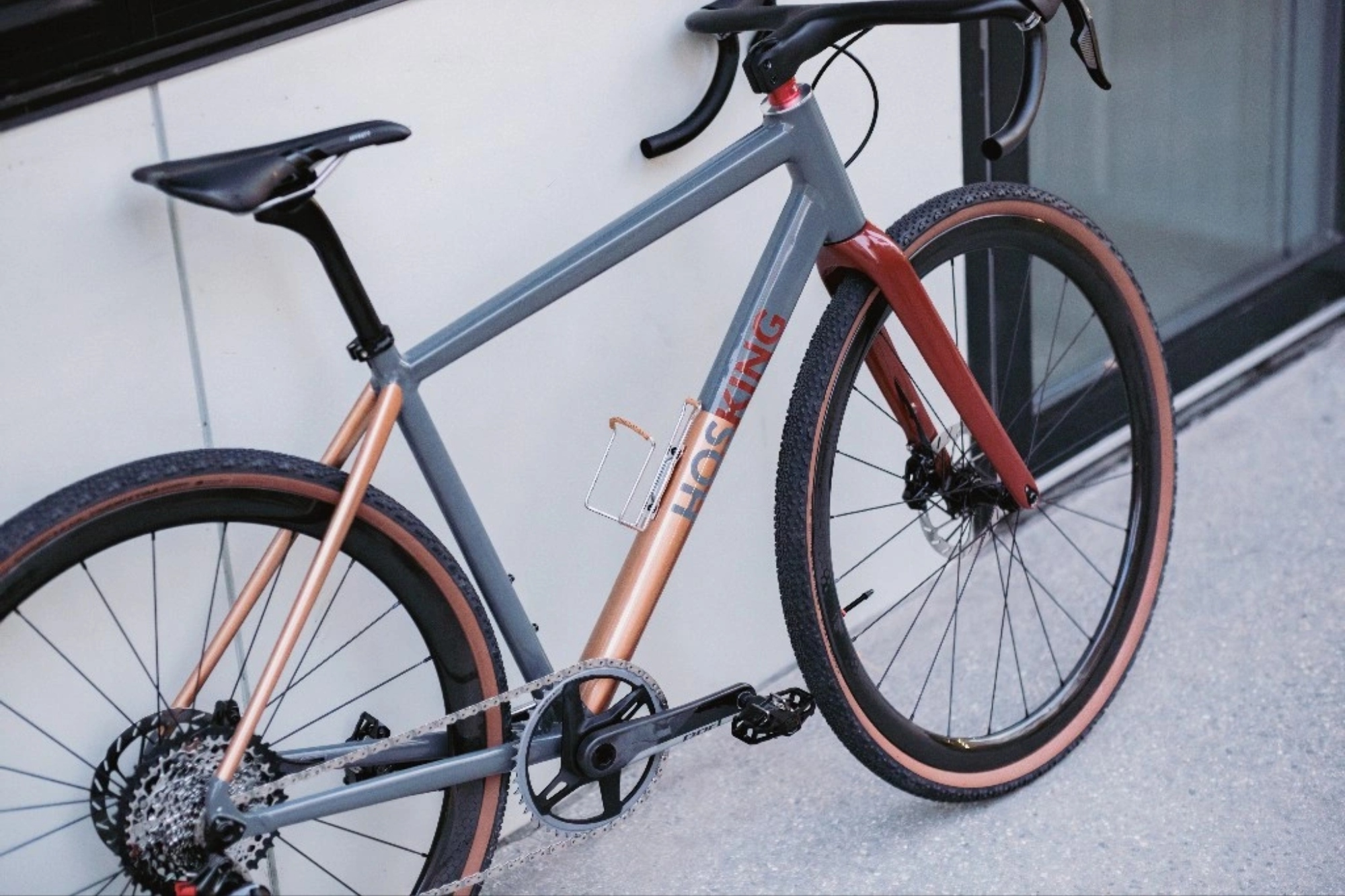
The cycling industry news hasn't been very good lately: sales down, profits falling, layoffs impending, product lines shrinking, etc. Yet amid this rocky landscape, Hosking couldn’t be more sure that this is the right time to get Hosking Bikes rolling.
“I feel that Hosking Bikes has an incredible chance to do something better and differently right now,” Hosking says. “We believe that we’re structuring Hosking Bikes to be a long-term, sustainable business and are taking notes —both good and bad— on what’s going on in the cycling industry currently, so we can learn from it as we grow our business.”
She notes that based on her research, the high price tags of large brands' products come from passing corporate costs onto the consumer.
“We’ve intentionally created a super lean company and that’s why we can deliver world-class bikes at an affordable price point,” Hosking shares. “If you look at some major bike companies, only 12% of their headcount goes to engineers, which means that they need to price their products in such a way that it sustains the other 88% of their business such as marketing and social media. We’re not going to do that at Hosking Bikes.”
When Hosking started Hosking Bikes, she knew that, at least for now, her employee count would be two: herself and her husband.
This allows Hosking to limit markup of the bikes - she still needs to make a profit, but by opting to use grassroots marketing strategies and declining to add a third person to the payroll, Hosking keeps her “corporate costs” quite low, which translates to cheaper sticker prices.
Hosking is confident that by keeping her employees limited to two and sticking to organic marketing in addition to using alloy for her frames, she will beat the doom and gloom plaguing other large bike companies.
Supporting the next generation
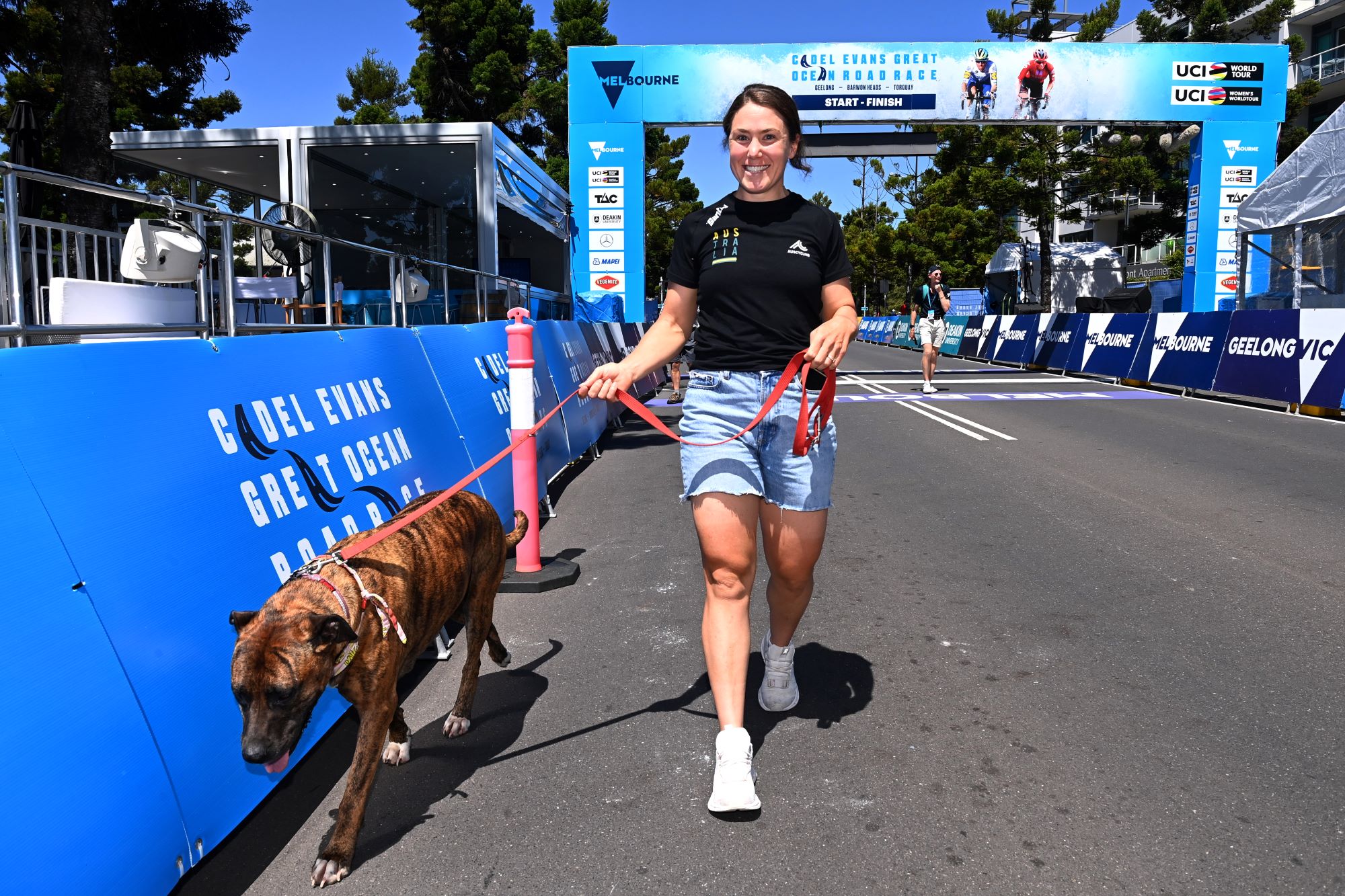
Some of the first cyclists to swing their legs over a brand new Hosking bike are the members if the U.S.-based Skyway Domestique Racing, a Cat 3 development teams Hosking Bikes is supporting this 2024 season.
“The reality is that many elite cyclists are not being sponsored with 15-thousand-dollar bikes and we hope this partnership shows that actually, you don’t have to be [in order] to be successful in the peloton," Hosking says.
“It’s my hope that by making bikes that are more affordable and innovative differently than most brands, we can try to bring more diverse perspectives and opinions into the cycling community.
“I hope that my legacy is that Hosking Bikes helped to break down barriers and get more people on bikes, whether you’re just cruising around town or have World Tour aspirations.”
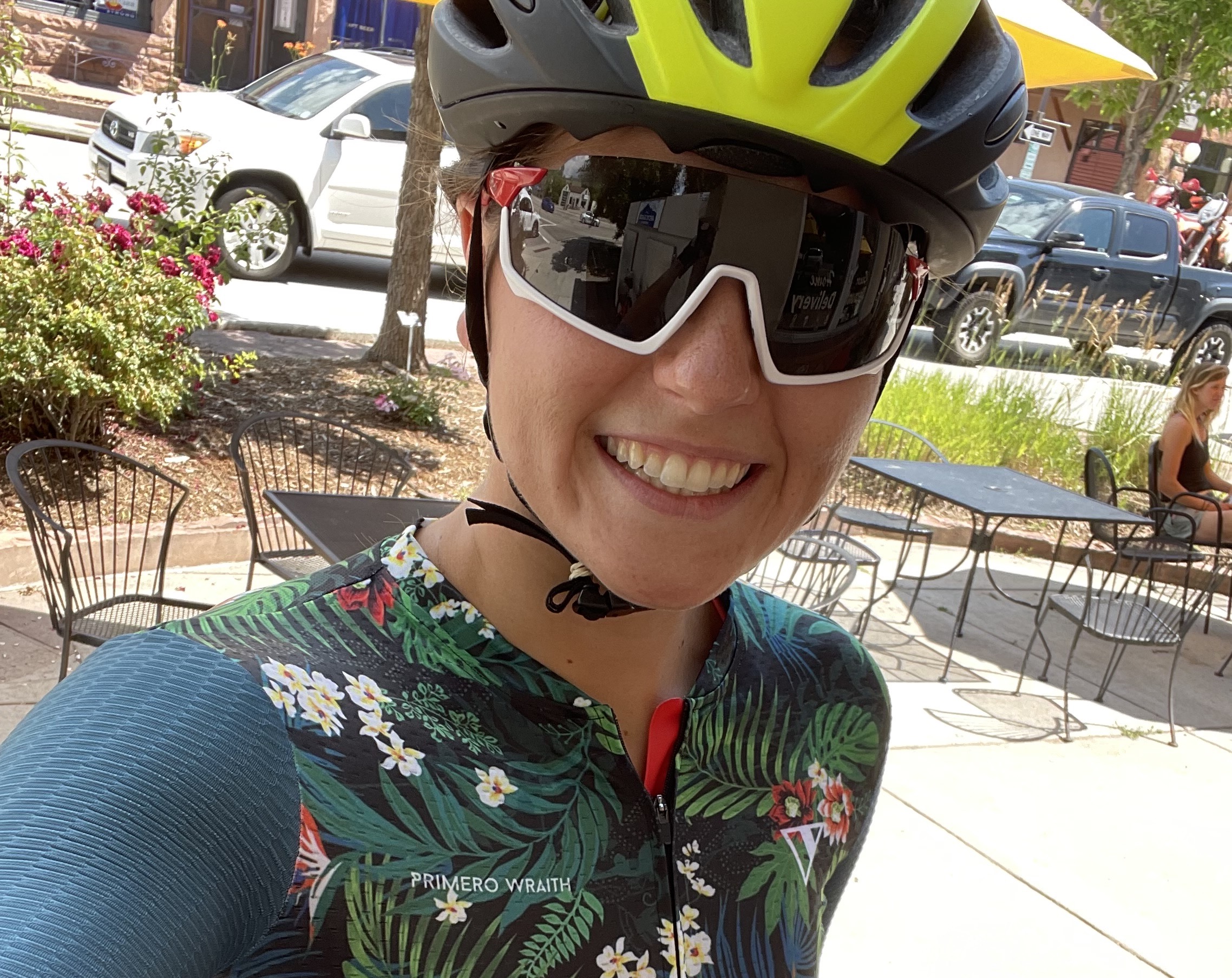
Kristin Jenny is an elite triathlete based near Boulder, Colorado. Although most of her time is spent in aerobars somewhere in the mountains, she finds time to enjoy eating decadent desserts, hiking with her husband and dog, and a good true crime podcast.